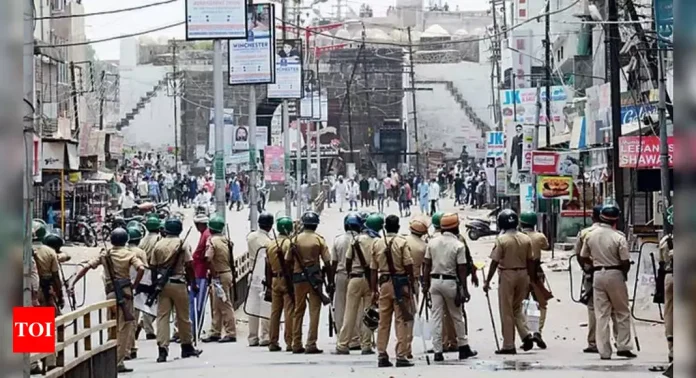The Centre for Study of Society and Secularism (CSSS), based on its monitoring of reports from prominent newspapers (Indian Express, Times of India, The Hindu, Sahafat, and Inquilab), recorded 59 communal riots in 2024 – a sharp 84% increase from the 32 incidents reported in 2023.
Maharashtra reported the highest number of communal riots (12), followed by Uttar Pradesh and Bihar, with seven each. Notably, Maharashtra has emerged as a hotspot for communal violence in 2024, recording both the most riots and incidents of mob lynching. These riots claimed 13 lives – three Hindus and ten Muslims.
Most communal riots were triggered during religious festivals or processions. Specific instances included four riots during Pran Pratishthan celebrations at Ayodhya Ram Mandir (January), seven riots linked to Saraswati Puja immersions, four riots during Ganesh festivals, and two riots during Eid al-Adha.
This trend highlights growing exploitation of religious celebrations to incite communal tensions and mobilise political support.
Besides riots, 12 mob lynching incidents were reported in 2024, resulting in 10 deaths – one Hindu, one Christian, and eight Muslims. While this reflects a decline from the 21 cases recorded in 2023, such attacks remain a pressing concern. Six lynchings were tied to cow vigilantism or accusations of cow slaughter while other lynchings stemmed from allegations of interfaith relationships and religious identity-based assaults targeting Muslims.
Geographically, Maharashtra recorded three lynching incidents, while Chhattisgarh, Gujarat, Haryana, and UP reported two each. Karnataka accounted for one incident.
This increase in communal riots and mob lynchings aligns with the political climate in 2024, marked by the General Elections and state assembly elections. Judicial interventions calling for stricter action against mob lynching, especially cases involving Hindu victims, may have contributed to the decline in lynching incidents.
CSSS’s annual report also highlights a troubling shift towards more institutionalised forms of violence in 2024. This includes attacks on religious sites, with fringe right-wing groups demanding archaeological surveys of historic mosques and dargahs, such as the Ajmer Dargah, legislative changes like the introduction of Uniform Civil Code in Uttarakhand and Waqf Amendment Bill, continued use of bulldozers to demolish Muslim-owned properties without due legal process, symbolising disproportionate state action against the Muslim community.
Bulldozers, now a symbol of “collective punishment,” were ironically used against Muslims even when they were victims of communal riots.
CSSS warns that these developments represent a concerted effort to reshape India’s socio-political and cultural landscape, further marginalising minority communities.




